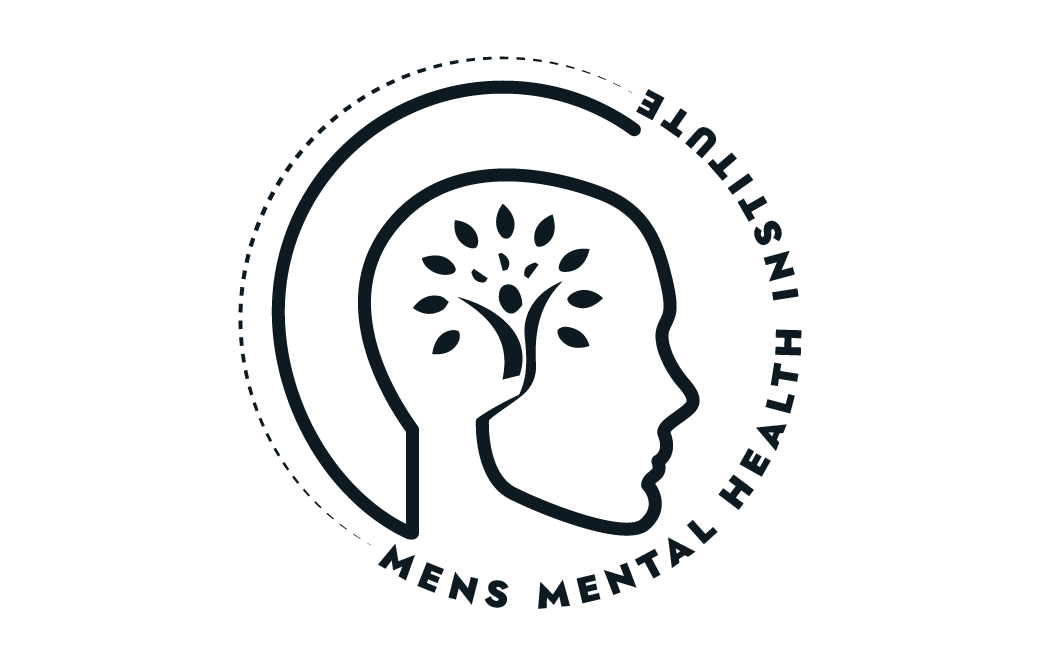Dating Struggles, Resentment, Redpill Recovery
The Invisible Barrier: Understanding Why Authenticity Feels Invisible
Many men come into therapy frustrated: “I’m just being myself, but women don’t seem to like me.” This feeling of invisibility or rejection despite authenticity can chip away at confidence and fuel self-doubt. From a neuroscience perspective, social connection activates the brain’s reward system, but it also triggers threat detection if past rejections or insecurities are present. When you feel anxious or unsure, your brain’s mammalian limbic system may unconsciously send out signals, like nervousness, hesitation, or people-pleasing, that make you less visible or attractive. Evolutionary psychology explains that attraction often involves complex signaling beyond just “being yourself.” Men and women have evolved to pick up cues of strength, confidence, emotional availability, and reliability. Sometimes “just being yourself” is mixed with low confidence, emotional guardedness, or unclear boundaries, which can undermine attraction. Social psychology points out that many men confuse “nice” or agreeable behavior with authenticity, while suppressing desires, opinions, or needs to avoid conflict or rejection. This “nice guy” persona often leads to invisibility, because it lacks the assertive presence that creates magnetic attraction. In the mental health field, there’s a tendency to pathologize these struggles as social anxiety or low self-esteem without addressing the deeper identity and communication issues. Over-labeling can create a fixed mindset that “I’m just not likeable,” which becomes a self-fulfilling prophecy.Therapeutic Strategies to Be Seen and Liked for Who You Are
Building Authentic Confidence Through CBT
Identify and challenge limiting beliefs like “I have to be perfect” or “If I’m honest, I’ll get rejected.” Practice small experiments in honesty and assertiveness to build real confidence.Attachment Work and Emotion Regulation
Explore fears of rejection or abandonment that cause you to hide parts of yourself. Learn skills to tolerate vulnerability without shutting down or people-pleasing.Social Skills Coaching and Role Play
Practice clear communication of wants, boundaries, and humor in a safe setting to improve real-world interactions.Mindfulness and Somatic Awareness
Increase awareness of body language and emotional states that influence how others perceive you.What You Gain When You’re Truly Seen
In mental health, you gain self-acceptance and emotional freedom, reducing anxiety about being judged.In relationships, you attract partners who appreciate your true self, leading to more fulfilling connections.
In life and work, authentic presence improves your influence, leadership, and social bonds.
In wealth, confidence and clear communication open doors in networking and career growth.
Being liked for who you are means shedding the “nice guy” mask and stepping fully into your authentic self with all your strengths and imperfections. Therapy rooted in brain science, behavioral change, and emotional courage can guide you there.
Infidelity (you or partner)
Understanding Infidelity Through a Male-Focused, Scientific Lens
Infidelity hits hard. Whether it’s you who cheated or your partner, the emotional fallout is brutal. For men, it can trigger a storm of shame, anger, confusion, and a deep identity crisis. Why did this happen? Am I not enough? Can I trust again? These questions echo in your brain and wreck your mental peace.From an evolutionary standpoint, infidelity taps into primal fears around survival, status, and reproduction. Men’s brains are wired to seek certainty about paternity and loyalty because thousands of years ago that meant survival for their genes. When trust breaks, it triggers the brain’s threat system, the amygdala lights up, flooding your body with stress hormones, pushing you into fight, flight, or freeze.
Social psychology adds another layer: modern relationships are complex contracts involving emotional intimacy, sex, status, and personal identity. When infidelity enters the mix, it challenges all these pillars. The mental health field often rushes to label cheaters or victims without understanding these complex layers, sometimes pushing one-size-fits-all solutions or medication that miss the root of the issue.
Behavioral and cognitive therapies help peel back these layers. But it’s important to recognize that neither partner is simply “good” or “bad.” Infidelity often reflects unmet needs, communication breakdown, or individual trauma, not just moral failure.
Strategies to Process Infidelity
Cognitive Behavioral Therapy (CBT): Helps both partners challenge destructive thoughts like “I’m worthless” or “I’ll never trust again,” replacing them with more balanced views that foster healing.
Emotionally Focused Therapy (EFT): Focuses on reconnecting emotional bonds and rebuilding trust through understanding attachment needs and fears driving infidelity.
Mindfulness and Somatic Therapies: Help regulate the nervous system after trauma, calming the fight or flight response and reducing reactivity that often sabotages communication.
Solution-Focused Therapy: Helps couples or individuals focus on practical steps forward, whether that’s repairing the relationship or building a new life.
Individual Therapy for Identity Work: For men especially, infidelity can fracture identity. Therapy can help rebuild a coherent sense of self beyond betrayal, exploring values, boundaries, and future vision.
What You Can Gain After Facing Infidelity
If you’re the partner who was betrayed, healing lets you reclaim your emotional power instead of living in fear or bitterness.If you’re the one who cheated, it’s a chance to confront your patterns, grow emotionally, and build honesty with yourself and others.
Either way, you can rebuild relationships, whether with your partner, yourself, or future partners, on firmer ground.
Resolving infidelity is not just about fixing what’s broken; it’s about creating a stronger, more authentic version of yourself who can love and be loved fully.
Mental health, love, and trust become possible again, not despite the pain, but because you chose to face it head-on with clarity, courage, and science-backed support.
The “Nice Guy” Paradox: Why Kindness Alone Isn’t Enough
If you’ve ever felt frustrated thinking, “I’m a good guy, but why do I always finish last?” you’re tapping into a complex emotional and social dynamic. The “nice guy” persona often involves being agreeable, self-sacrificing, and conflict-avoidant,traits that, while valuable, can backfire in relationships and social settings. From a neuroscience standpoint, people are wired to respond to signals of confidence, emotional regulation, and assertiveness. When the “nice guy” suppresses anger, boundaries, or authentic desires, the brain’s threat detection system can misread this as passivity or lack of value, which can lower perceived social status. Evolutionary psychology shows that attraction and respect often hinge on a balance of kindness and strength. Men who are too agreeable may fail to signal competence or leadership, which are traits often sought after subconsciously. Social psychology research points out that “nice guys” frequently engage in people-pleasing behaviors, hoping to earn love and respect through approval rather than genuine connection. This dynamic can create resentment or invisibility, because relationships based solely on approval are unstable. The mental health industry sometimes mislabels this pattern as codependency or anxiety, prescribing medication or generic therapy without addressing the deeper identity issues and communication deficits. Over-diagnosis can distract from empowering men to develop authentic assertiveness.Therapeutic Approaches to Overcome the “Nice Guy” Trap
Cognitive Behavioral Therapy (CBT)
Helps identify and reframe beliefs like “I must always please others to be loved” or “Conflict is dangerous.” Builds skills to express needs and limits respectfully.Dialectical Behavior Therapy (DBT)
Teaches emotional regulation and distress tolerance, so you can handle conflict without shutting down or exploding.Assertiveness Training
Practical exercises to communicate honestly and set boundaries while maintaining respect and empathy.Exploring Masculine Identity
Therapy that helps integrate strength and kindness into a balanced identity, moving beyond stereotypes.What You Gain When You Stop Finishing Last
Mentally, you develop stronger self-worth and reduce anxiety about rejection. In relationships, you attract partners who respect your boundaries and authentic self. Socially and professionally, you command respect and influence without sacrificing kindness. Financially, confident decision-making and leadership open doors to new opportunities. Being “nice” is valuable, but being assertive, authentic, and emotionally balanced is what truly helps you thrive. Therapy can support you in shifting from “nice guy” to “real man”—one who finishes first in life and love.The Confusing Pull Toward “Bad Men”: A Male Perspective
Many men ask themselves, “Why do women seem to choose bad men?” This question often comes from frustration, hurt, and confusion. It’s important to understand that this isn’t about “women” as a whole, but about patterns driven by deep psychological and social forces. From a neuroscience lens, human brains are wired to seek both safety and excitement. “Bad men” often display traits associated with high testosterone, dominance, and risk-taking, which historically signal genetic fitness in evolutionary terms. This can trigger a strong attraction response, even if those traits come with emotional volatility or instability. Social psychology explains that trauma or attachment wounds in women can unconsciously drive them toward partners who recreate familiar patterns, even harmful ones, as their brains try to “solve” early relational pain. Men sometimes interpret this as unfair or irrational, but the truth is complex: attraction isn’t just about “good” or “bad” but about unconscious needs, emotional chemistry, and learned behavior. In the mental health field, women’s choices are often pathologized with labels like “trauma bonding” or “codependency” without addressing the relational context or offering nuanced support for change.Therapeutic Strategies to Understand and Shift Patterns
Attachment-Informed Therapy
Explores early relationship patterns to uncover why certain partner choices repeat. Healing these wounds reduces the pull toward toxicity.Emotion Regulation and Mindfulness
Helps manage the highs and lows of intense relationships and develop healthier emotional responses.Cognitive Behavioral Therapy (CBT)
Challenges distorted beliefs like “I can fix her” or “I’m only lovable if I’m valuable.”Psychoeducation on Healthy Boundaries
Teaches how to recognize red flags and build standards for respectful relationships.What Men Can Gain From Understanding This Dynamic
Mentally, you develop empathy and realistic expectations about attraction and relationships.In love, you become more aware of your own patterns and can foster healthier partnerships.
Socially, better understanding reduces bitterness and improves communication with partners.
Financially and emotionally, stability grows as you invest in balanced, respectful relationships rather than drama.
Understanding why some women are drawn to “bad men” isn’t about blame,it’s about insight, compassion, and growth. Therapy integrating brain science, emotional work, and social awareness can help you break cycles and build lasting connection.
The Redpill Narrative and Its Clash With Real Life
Many men come across the “redpill” community,a set of ideas claiming to expose “truths” about women, dating, and masculinity. It often promotes rigid, cynical views: women are manipulative, dating is a game of power, and traditional masculinity is under attack. From a behavioralist and social psychology viewpoint, the redpill framework can function as a coping mechanism for men feeling rejected or powerless in modern dating. It offers a sense of control and belonging but can oversimplify complex human behavior and relationships into black-and-white categories. Neuroscience shows human relationships are regulated by complex brain systems involving attachment, reward, and social cognition. Reducing this to simplistic “us vs them” narratives misses the nuanced reality of emotional connection and vulnerability. Evolutionarily, human mating strategies are diverse and context-dependent; neither “redpill” absolutism nor its direct opposites capture the fluid, relational nature of attraction and partnership. The mental health field often struggles with these communities,either dismissing them outright or ignoring the legitimate frustrations men express. Overdiagnosis or mislabeling men who engage with redpill ideas can prevent real healing and growth.Therapeutic Strategies for Navigating These Beliefs
Cognitive Behavioral Therapy (CBT)
Helps men critically examine redpill beliefs, testing their accuracy and impact on behavior and relationships.Emotion-Focused Therapy
Supports men in exploring underlying feelings of hurt, rejection, and loneliness behind the redpill mindset.Dialectical Behavior Therapy (DBT)
Teaches mindfulness and emotional regulation skills, helping men tolerate uncertainty and complexity in relationships.Narrative Therapy
Encourages rewriting one’s story beyond rigid labels, opening up new possibilities for identity and connection.What Men Can Gain by Moving Beyond Redpill Simplifications
Mentally, they build emotional resilience and reduce anger or bitterness.In relationships, they develop richer, more authentic connections based on mutual respect and vulnerability.
Socially, they foster healthier communication and community ties.
Financially, greater emotional balance supports professional growth and decision-making.
Understanding the gap between redpill ideology and real-life relationships allows men to reclaim agency,not through rigid rules, but through self-awareness, empathy, and honest connection. Therapy rooted in brain science and relational psychology can guide this journey.
The Pain of Past Relationships and the Desire for Connection
It’s common for men who’ve been hurt in past relationships to carry wounds that make opening up to love again feel risky or impossible. You might think, “I’ve been burned before,how can I trust or let myself be vulnerable again?” From a neuroscience perspective, emotional pain from past rejection or betrayal can create heightened sensitivity in the brain’s threat and pain centers. This leads to protective patterns like emotional withdrawal, distrust, or hypervigilance. Evolutionary psychology highlights that humans are wired for connection, but also for self-preservation. After painful experiences, your brain prioritizes safety, which can make new relationships feel like threats instead of opportunities. Social psychology points out that past relational trauma often shapes expectations and behaviors in new relationships. Negative cycles can develop, including fear of abandonment, jealousy, or difficulty trusting. The mental health system sometimes pushes quick fixes,medications or surface-level therapy,that don’t address deep emotional healing or relational skills, leaving men stuck in painful patterns.Therapeutic Strategies to Heal and Open Up to Love Again
Attachment-Based Therapy
Works on healing early and recent relational wounds to build secure, trusting connections.Cognitive Behavioral Therapy (CBT)
Helps identify and reframe negative beliefs about love, trust, and self-worth.Emotionally Focused Therapy (EFT)
Facilitates experiencing and expressing vulnerable emotions in a safe therapeutic relationship.Mindfulness and Somatic Therapies
Teach awareness and regulation of emotional and physical responses tied to past trauma.What You Can Hope to Gain by Healing Past Wounds
Mentally, you gain resilience, emotional balance, and a more hopeful outlook.In love, you open space for genuine intimacy, trust, and connection.
Socially, you rebuild confidence in relating authentically to others.
Financially and professionally, emotional healing supports focus, creativity, and growth.
Being burned doesn’t mean you have to give up on love. With the right therapeutic support grounded in brain science and relational psychology, you can heal, grow, and open your heart again,stronger and wiser.
When Dating Feels Like a Business Deal
If dating feels more like a negotiation or checklist than a genuine connection, you’re not alone. Many men describe modern dating as transactional,where value, appearances, and “what you bring to the table” dominate over authentic chemistry or emotional intimacy. From a neuroscience perspective, our brains crave genuine social bonding, which activates reward centers linked to trust, safety, and pleasure. When dating is reduced to metrics or superficial exchanges, it triggers stress responses instead,making connections feel forced and unfulfilling. Evolutionary psychology reminds us that humans evolved for pair bonding, not transactional exchanges. However, social changes, digital dating platforms, and shifting gender roles can amplify transactional dynamics, encouraging comparison, competition, and performance over vulnerability. Social psychology highlights how cultural messages and dating “scripts” shape expectations, sometimes encouraging a “marketplace” mentality where people are evaluated like commodities. Unfortunately, the mental health industry often overlooks these socio-cultural dynamics, focusing narrowly on individual pathology rather than systemic influences that impact relationship quality.Therapeutic Approaches to Reclaiming Authentic Connection
Solution-Focused Therapy
Helps clients identify and build on moments when connection felt real, focusing on practical steps toward more meaningful interactions.Emotion-Focused Therapy (EFT)
Supports exploring and expressing deeper emotions often masked in transactional dating.Mindfulness and Somatic Therapy
Encourages presence and attunement to both self and partner, breaking cycles of performance and evaluation.Social Skills and Communication Coaching
Builds confidence in vulnerability, authentic sharing, and boundary-setting.What You Gain When Dating Feels Less Transactional
Mentally, you experience reduced anxiety and a stronger sense of self-worth. In relationships, you cultivate deeper, more fulfilling emotional bonds. Socially, you attract partners who value you beyond superficial criteria. Professionally and financially, emotional authenticity supports well-being and decision-making. Dating doesn’t have to be a transactional game. Therapy informed by brain science and social psychology can guide you back to what relationships were meant to be,safe, meaningful, and transformative.When Money Feels Like the Main Attraction
If you find yourself thinking, “The women I date are always gold diggers,” it’s easy to feel frustrated, used, or cynical about relationships. This concern touches on deep issues about trust, self-worth, and what you believe you bring to a partnership. From a neuroscience perspective, money and status can activate reward circuits linked to security and social status. For some, financial resources signal stability, which has evolutionary roots in mate selection. However, when relationships revolve mainly around money, it can create anxiety and suspicion in the brain’s threat detection system. Social psychology teaches us that societal pressures and gender norms can complicate how men and women relate around resources. Economic inequality and cultural messaging about gender roles may contribute to transactional dynamics, but it’s rarely as one-sided or simple as the “gold digger” label suggests. The mental health field sometimes reinforces stereotypes or quick judgments, overlooking the deeper emotional needs and systemic factors at play. Over-labeling partners can prevent honest communication and emotional connection.Therapeutic Strategies to Explore and Heal This Dynamic
Cognitive Behavioral Therapy (CBT)
Challenges unhelpful assumptions and reframes beliefs about money and relationships.Attachment Work
Explores how early experiences shape trust and expectations around resources.Couples Therapy
Fosters open dialogue about financial values, boundaries, and shared goals.Solution-Focused Approaches
Empower men to build confidence and attract partners aligned with their true values.What You Can Gain by Addressing These Concerns
Mentally, you develop clarity, reduced suspicion, and increased emotional security.In love, you foster partnerships based on mutual respect and shared values,not just finances.
Socially, your relationships grow richer and less transactional.
Financially and emotionally, you gain peace of mind and a healthier balance of giving and receiving.
Feeling like your partners are “gold diggers” is often a sign to look deeper,at both yourself and the relationship patterns. With therapy grounded in brain science, social context, and emotional insight, you can shift toward connections that honor your worth beyond your wallet.
Dating Challenges, Emotional Resentment, and Relationship Realities

Dating Gold Diggers
When Money Feels Like the Main Attraction If you find yourself thinking, “The women I date are always gold diggers,” it’s easy to feel frustrated, used, or cynical about relationships. This concern touches on deep issues about trust, self-worth, and what you believe you bring to a partnership. From a

Dating Feels Transactional
When Dating Feels Like a Business Deal If dating feels more like a negotiation or checklist than a genuine connection, you’re not alone. Many men describe modern dating as transactional, where value, appearances, and “what you bring to the table” dominate over authentic chemistry or emotional intimacy. From a neuroscience

Burned but Want Love
The Pain of Past Relationships and the Desire for Connection It’s common for men who’ve been hurt in past relationships to carry wounds that make opening up to love again feel risky or impossible. You might think, “I’ve been burned before, how can I trust or let myself be vulnerable

Redpill vs Reality
The Redpill Narrative and Its Clash With Real Life Many men come across the “redpill” community, a set of ideas claiming to expose “truths” about women, dating, and masculinity. It often promotes rigid, cynical views: women are manipulative, dating is a game of power, and traditional masculinity is under attack.

Nice Guy, Last Place
The “Nice Guy” Paradox: Why Kindness Alone Isn’t Enough If you’ve ever felt frustrated thinking, “I’m a good guy, but why do I always finish last?” you’re tapping into a complex emotional and social dynamic. The “nice guy” persona often involves being agreeable, self-sacrificing, and conflict-avoidant, traits that, while valuable,

Why Women Don’t Like Me
The Invisible Barrier: Understanding Why Authenticity Feels Invisible Many men come into therapy frustrated: “I’m just being myself, but women don’t seem to like me.” This feeling of invisibility or rejection despite authenticity can chip away at confidence and fuel self-doubt. From a neuroscience perspective, social connection activates the brain’s

